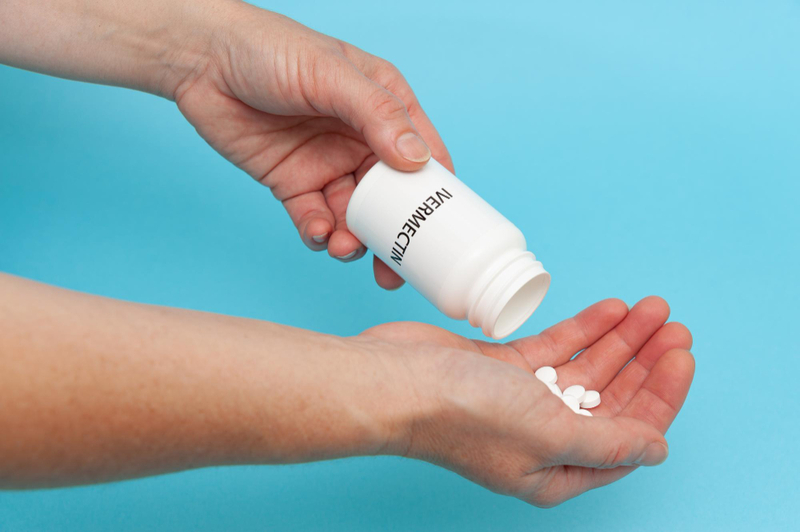Rosacea is a chronic skin condition affecting millions worldwide, leading to facial redness, visible blood vessels, and, in some cases, small pus-filled bumps or pustules. While there is no definitive cure for rosacea, several treatment options can help manage symptoms and improve the quality of life for those affected. Ivermectin has recently gained attention as a potential treatment for rosacea due to its effectiveness in reducing inflammation and controlling flare-ups. In this article, we will explore whether ivermectin is good for rosacea, how it works, how to use it effectively, and whether it is a suitable treatment option for Canadians dealing with this condition. By understanding the benefits and potential side effects, Canadians can make informed decisions about managing rosacea and improving their skin health.
Understanding Ivermectin
Ivermectin is an antiparasitic medication originally developed for use in veterinary medicine and later adapted for human use. It works by paralyzing and eliminating parasites, particularly nematodes and arthropods. In recent years, ivermectin has found its place as an effective treatment for certain skin conditions, including rosacea, due to its anti-inflammatory, antiparasitic, and antimicrobial properties. Additionally, ivermectin:
- Regulates skin microbiome: By reducing harmful bacteria and Demodex mites on the skin, ivermectin can help rebalance the skin microbiome, which may play a role in rosacea management.
- Stimulates healing: Ivermectin may help promote the healing of damaged skin, reducing the overall appearance of rosacea symptoms.
- Improves skin barrier function: By supporting the skin’s barrier function, ivermectin helps protect the skin from environmental irritants and pollutants that may exacerbate rosacea.
How Does Ivermectin Work for Rosacea?
The exact cause of rosacea is unknown, but it is believed to be a combination of genetic, environmental, and vascular factors. Ivermectin targets multiple aspects of rosacea, making it an effective treatment option:
- Anti-inflammatory effects: Ivermectin has been shown to reduce inflammation, a primary factor in rosacea symptoms such as redness and swelling, by inhibiting the production of pro-inflammatory cytokines.
- Antiparasitic action: Demodex mites, which live on the skin, have been linked to rosacea. Ivermectin targets these mites, helping to control their population and potentially alleviate rosacea symptoms, resulting in improved skin texture and comfort.
- Antimicrobial properties: Ivermectin helps manage bacterial growth on the skin, which can contribute to the severity of rosacea, thus aiding in the prevention of secondary infections.
- Immunomodulatory effects: Ivermectin may have immunomodulatory effects that help regulate the immune response, potentially reducing skin flare-ups and promoting overall skin health.
- Decreased vascular reactivity: Ivermectin may help decrease the skin’s vascular reactivity, leading to less frequent and less intense flushing episodes, improving the overall appearance of the skin.

By addressing these underlying factors, ivermectin can improve rosacea symptoms and contribute to better overall skin health.
How to Use Ivermectin for Rosacea
Ivermectin for rosacea is most commonly available in topical formulations, such as creams and lotions. When using ivermectin for rosacea, follow these steps for best results:
- Cleanse your skin: Wash your face gently with a mild, non-abrasive cleanser and pat it dry with a clean towel. Avoid harsh soaps and astringents.
- Apply the medication: Apply a thin layer of ivermectin cream or lotion to the affected areas of your face, avoiding contact with your eyes and mucous membranes.
- Follow the prescribed schedule: Typically, ivermectin is applied once daily, but your healthcare provider may adjust the frequency based on your skin’s response.
- Monitor for side effects: Common side effects include itching, redness, and dryness. If you experience severe or persistent side effects, contact your healthcare provider.
- Use sun protection: Ivermectin may increase skin sensitivity to the sun, so be sure to apply a broad-spectrum sunscreen daily and wear protective clothing when outdoors.
Before beginning any treatment, you should consult with your healthcare provider. They can recommend the best formulation and dosage based on your specific requirements and track your progress throughout treatment.
Is Ivermectin for Rosacea Good?
Ivermectin has demonstrated promising results in the treatment of rosacea. The main advantages of using ivermectin for rosacea include:
- Effectiveness: Clinical studies have shown that ivermectin can significantly reduce the symptoms of rosacea, including redness, swelling, and pustules.
- Long-lasting results: Patients using ivermectin often experience sustained improvements in their skin condition, even after discontinuing treatment.
- Well-tolerated: Ivermectin is generally well-tolerated by most patients, with few reported side effects. This makes it a preferable treatment option for those who may have experienced adverse reactions to other treatments.
- Improved skin barrier function: Ivermectin may help strengthen the skin’s barrier function, protecting against irritants and further inflammation.
- Reduced recurrence: Ivermectin may reduce the recurrence of rosacea symptoms by targeting the underlying causes of the condition.

While ivermectin may not be the right choice for everyone, it offers a valuable treatment option for those seeking relief from rosacea symptoms. Always consult with a healthcare provider or seek online rosacea treatment advice in Canada to determine if ivermectin is the most appropriate option for your specific situation.
Final Thoughts
Ivermectin is a promising treatment for rosacea that targets the underlying causes of the condition. Its anti-inflammatory, antimicrobial, and antiparasitic properties work together to alleviate rosacea symptoms and improve overall skin health. If you’re a Canadian considering ivermectin for rosacea, it’s essential to consult with a healthcare provider to determine the most appropriate treatment plan for your specific needs. For Canadians seeking online rosacea treatment, discuss ivermectin with your provider to determine if it’s the right choice for you. With proper guidance and monitoring, ivermectin can help improve the appearance and comfort of your skin, offering relief to those affected by rosacea across Canada.
FAQs
Can ivermectin be used alongside other rosacea treatments?
Yes, ivermectin can often be used in conjunction with other treatments, such as antibiotics or laser therapy. It’s essential to consult with your healthcare provider to create a comprehensive treatment plan.
How soon can I expect to see improvements when using ivermectin for rosacea?
Patients may begin to see initial improvements in their rosacea symptoms within a few weeks of starting treatment with ivermectin. Full results may take several months to become apparent, depending on the severity of the condition.
What precautions should be taken when using ivermectin for rosacea?
When using ivermectin, avoid applying it near the eyes or on any broken skin. Always follow your healthcare provider’s instructions, and notify them of any allergies or pre-existing medical conditions before starting treatment.
Is ivermectin safe for long-term use in treating rosacea?
Ivermectin is generally considered safe for long-term use, but ongoing monitoring by a healthcare provider is necessary. Regular check-ins ensure the treatment remains effective and safe, and allows for adjustments if needed.
